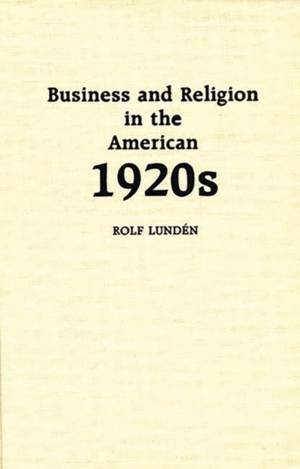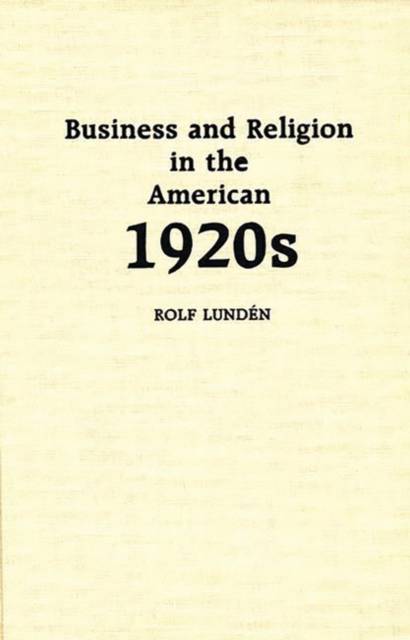
Je cadeautjes zeker op tijd in huis hebben voor de feestdagen? Kom langs in onze winkels en vind het perfecte geschenk!
- Afhalen na 1 uur in een winkel met voorraad
- Gratis thuislevering in België vanaf € 30
- Ruim aanbod met 7 miljoen producten
Je cadeautjes zeker op tijd in huis hebben voor de feestdagen? Kom langs in onze winkels en vind het perfecte geschenk!
- Afhalen na 1 uur in een winkel met voorraad
- Gratis thuislevering in België vanaf € 30
- Ruim aanbod met 7 miljoen producten
Zoeken
Omschrijving
Addressing a phenomenon that continues to shape our culture today, Professor Lunden presents a full-length analysis of the relationship between business and religion during the 1920s. He examines both the impact of the business mentality on Protestant institutions and values and the effects of religion on business. Beginning with a discussion of business and entrepreneurship as determining factors in the development of American society, Lunden looks at the position of the Protestant churches vis-a-vis business. He next explores business attitudes toward religion. Commenting on the adoption of specific Judeo-Christian concepts, religion. Commenting on the adoption of specific Judeo-Christian concepts, he describes both how these concepts were applied in a business context and what concessions were made by business when Protestant values came into conflict with those of the commercial world. In his final chapter he considers the implications of the business community's appropriation of religious functions and the widespread belief that its mission was linked to the redemption of society.
Specificaties
Betrokkenen
- Auteur(s):
- Uitgeverij:
Inhoud
- Aantal bladzijden:
- 217
- Taal:
- Engels
- Reeks:
Eigenschappen
- Productcode (EAN):
- 9780313251511
- Verschijningsdatum:
- 11/02/1988
- Uitvoering:
- Hardcover
- Formaat:
- Genaaid
- Afmetingen:
- 140 mm x 216 mm
- Gewicht:
- 430 g

Alleen bij Standaard Boekhandel
+ 322 punten op je klantenkaart van Standaard Boekhandel
Beoordelingen
We publiceren alleen reviews die voldoen aan de voorwaarden voor reviews. Bekijk onze voorwaarden voor reviews.









